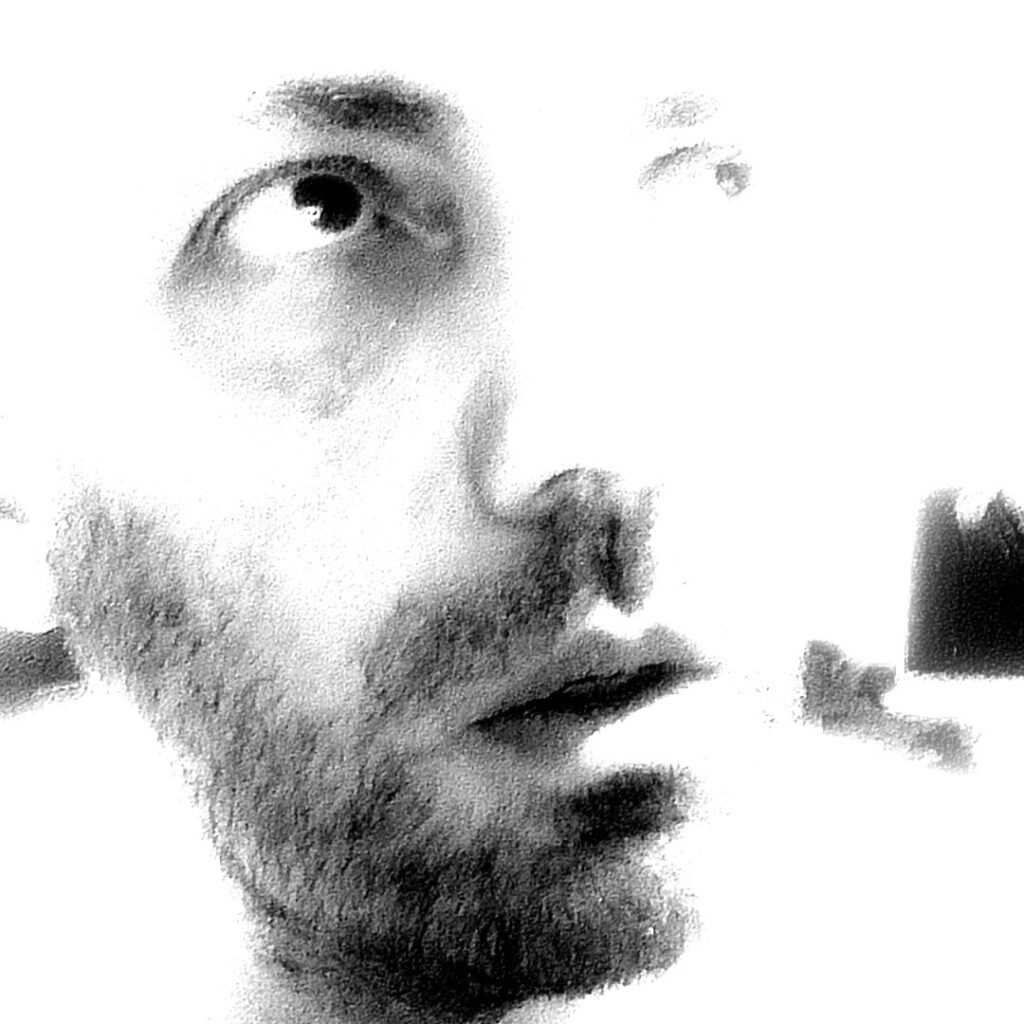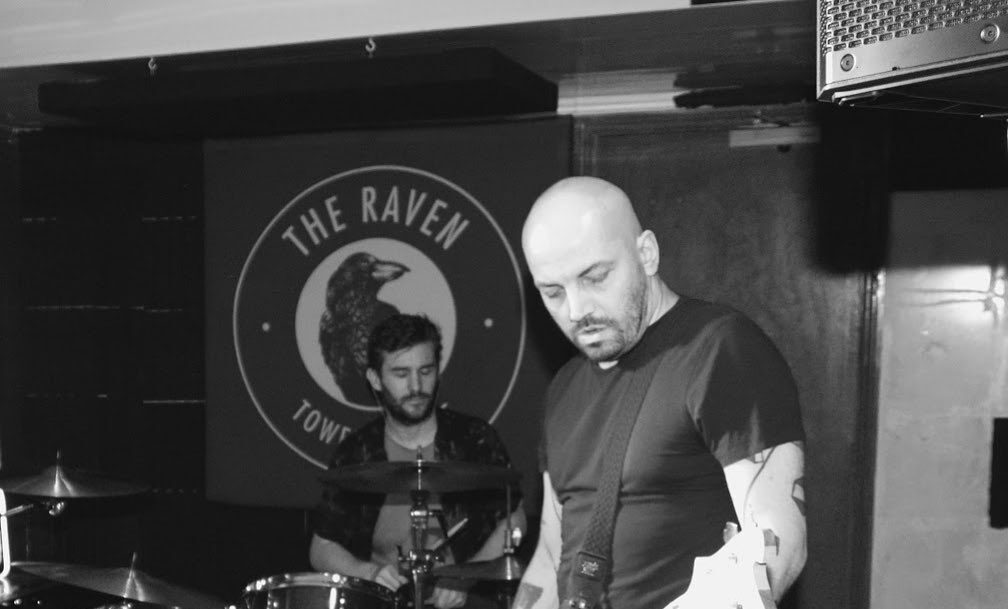Following up on Anarchy (Music for Cats), this EP features only songs that were written specifically for it. Despite being more focused on industrial introspective music, the style still belongs to the realm of dark ambient soundscapes. It is the outcome of tests using new hardware and plugins. It all began with the title “PERPETRATOR,” which inspired the artist to write the story in the five tracks you can hear today. Check out the exclusive interview below:

1. Can you tell us a bit about where you come from and how it all got started?
NICOLAS ZAPPA: I’m originally from France but I’ve been a Londoner for nearly 6 years now. I’ve been into music my whole life. I started when I was about 7 taking clarinet lessons but what I really wanted to do was drums or electric guitar. Just picture a French kid in the 80’s air playing to The Cure, Iron Maiden and Metallica with his older brother. But I really started rock music when I was about 15 as a bass player. Then I had a few bands, on drums, on guitar, and I got into industrial, goth stuff then later into electronic music with psytrance, minimal techno, IDM to finally go back to rock music. without forgetting about electronic music. Nowadays, I’m mostly active in a band called The Silent Era – you guys reviewed our latest single – we do some sort of goth-y shoegaze-y rock (I’m really bad at describing my music), another band I just started you’ll hear about it later and at the same time I make my own noise under my name, and just released a new EP called PERPETRATOR, which is very electronic, somewhere between Industrial, dark ambient kind of sound (told you, really bad at describing my music).
2. Did you have any formal training or are you self-taught?
NICOLAS ZAPPA: About music theory, I had a bit of formal training from my clarinet days but I’m mostly self-taught, and learning from friends. And as for music production, I studied sound engineering so I had a formal training but I learned much more by experimenting and watching other producers and engineers in the past 25 years.
3. Do you think is it important for fans of your music to understand the real story and message driving each of your songs, or do you think everyone should be free to interpret your songs in their own personal way?
NICOLAS ZAPPA: I hope that everyone can find their own meaning. Although the atmosphere is pretty obvious, the EP is instrumental so it is easier for people to interpret it in their own way and make up their own stories than if there were lyrics. I really like the idea that art should trigger people’s own imagination.
4. What do you feel are the key elements in your music that should resonate with listeners, and how would you personally describe your sound?
NICOLAS ZAPPA: The atmosphere is probably what I’m after most of the time. This and developing a storyline. I’m not into complex melodies, and I’m terrible at this. So if you are into pretty dark, minimalistic, industrial-ish soundscapes, you might be interested in my new EP. I like cinematic music that you can listen to actively or passively while doing something else.

5. Who were your first and strongest musical influences?
NICOLAS ZAPPA: There are many different ones that you can possibly hear depending on the project I’m working on. For my solo stuff, and the new EP in particular, Trent Reznor & Atticus Ross, John Carpenter, Survive, HEALTH, Aphex Twin to name a few. But overall, The Cure, Pink Floyd, NIN, Depeche Mode and 4 decades of listening to various artists.
6. For most artists, originality is first preceded by a phase of learning and, often, emulating others. What was this like for you? How would you describe your own development as an artist and music maker, and the transition towards your own style?
NICOLAS ZAPPA: I think David Bowie had this approach his whole life, found something new and made his own version of it on almost every album. I’m not comparing myself to Bowie but because I had many different projects in the last 25 years, I had different learning phases, I learned different styles, different instruments, different techniques and tried to make my own thing with it, often mixing different things together. I don’t think I could just keep doing the same thing over and over. This new EP may sit in the industrial category, but the previous one was a mix bag. The new one will have something new. With the band (The Silent Era), I’ve been through different phases too. It’s just difficult for me to stay in the same narrow lane, that’s why I have different projects and I like working with different artists for mixing for example (e.g. Wolff Bergen, I mixed one of his records, it’s totally different music from what I do).
7. What’s your view on the role and function of music as political, cultural, spiritual, and/or social vehicles – and do you try and affront any of these themes in your work, or are you purely interested in music as an expression of technical artistry, personal narrative, and entertainment?
NICOLAS ZAPPA: I think I’m more of the latter due to the styles of music I make but it doesn’t mean I don’t have strong opinions about politics, social issues, environment, spirituality and culture. And I think it’s important that artists use their own platforms to share their views and encourage their fans to care about these topics, as long as they have a good mindset, which is why it would be a good idea to stop making stupid people famous!
8. Do you feel that your music is giving you back just as much fulfilment as the amount of work you are putting into it or are you expecting something more, or different in the future?
NICOLAS ZAPPA: HonestIy, and it’s going to sound bitter but like many other musicians I wish I could make a living out of music. At the moment I must have a day job that pays the bills and my musical expenses. But you know, we live in a society built around terrible ideas, like artists are considered non-essential (although I’m sure those idiots who think that were glad to have music to listen to, movies to watch, books to read, etc during the lockdowns..!), and bullshit jobs pay the most. You know, weird priorities. That being said, on a purely artistic point of view, I feel satisfied, I have interesting projects with incredible people. And I know that all of these projects have unlimited possibilities.
9. Could you describe your creative processes? How do usually start, and go about shaping ideas into a completed song? Do you usually start with a tune, a beat, or a narrative in your head? And do you collaborate with others in this process?
NICOLAS ZAPPA: It depends, it can start with a beat and a bass line, or a sound, or because I’m playing with a new synth, or a guitar pedal or anything. Sometimes it’s the vibe of a specific song I’m trying to capture and mimic. And once I have the first element, I can build around it with other parts, structure it to make a storyline. And then I’ll have a rough version of it, I’ll often leave it for a little while, work on something else and get back to it to finalise it later. With the band, it’s a little different cause I’m not the only one involved but it often starts the same way.
10. Creative work in a studio or home environment, or interaction with a live audience? Which of these two options excites you most, and why?
NICOLAS ZAPPA: Definitely studio. I enjoy playing live and get the immediate response from the audience but I much prefer being in my own bubble, creating songs, experimenting, having ideas, putting them down, etc. But both complement each other, it’s important for a musician to do both. I mean that playing live often requires to adapt parts, sounds, etc in order to translate what you worked on in the studio into a live context, which is interesting.
KEEP IN TOUCH:
INSTAGRAM | SPOTIFY | BANDCAMP | WEBSITE

